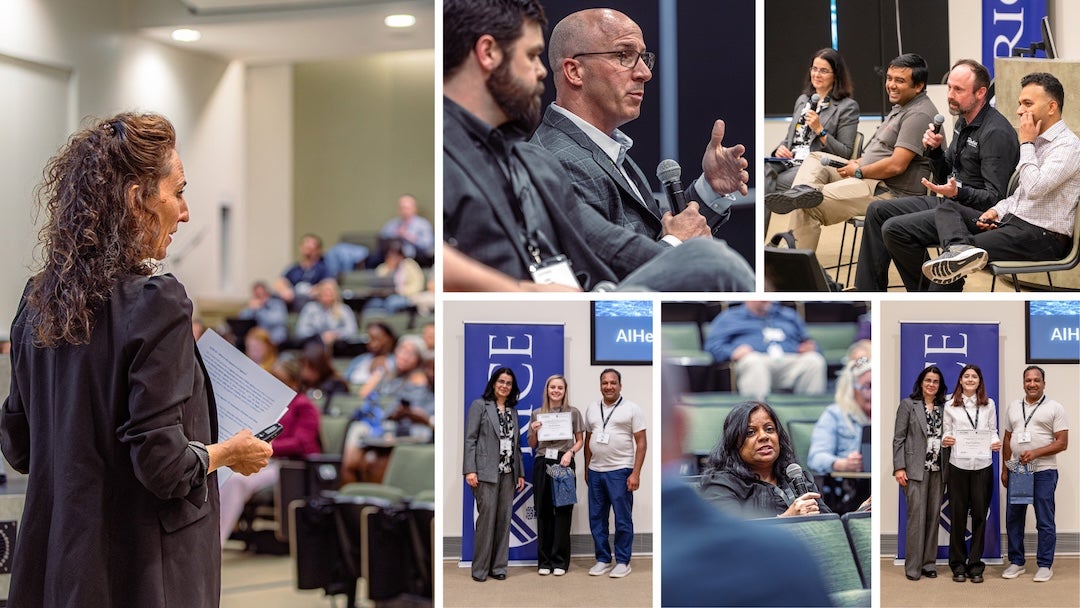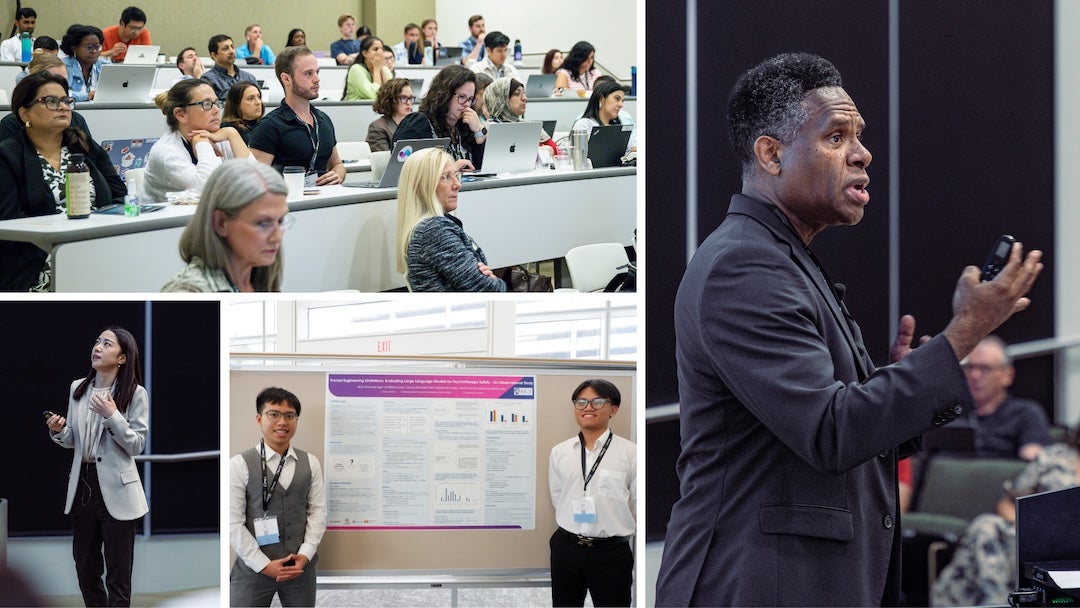By Kelly Peters,
Special to Rice News
The Ken Kennedy Institute at Rice University hosted the fourth annual AI in Health Conference Sept. 22-25 at the Bioscience Research Collaborative, convening over 550 attendees across the four-day event for plenary speaker sessions, networking and workshops that explored key areas for artificial intelligence-driven advancement across health and public health domains.
AI has become widely integrated into day-to-day tasks, but with that movement has risen heightened concerns for data transparency and responsible use. As tools and workflows become increasingly automated, it’s vital to critically examine how AI is rapidly transforming the ways researchers, clinicians, policymakers and patients manage and experience health care.

The conference addressed these concerns while reflecting on recent health innovations and highlighting emerging trends and technologies, providing an annual update on the state of AI in health. This year’s program focused on topics related to AI for modern therapeutics and drug discovery, AI for clinical research — from foundational AI tools and frameworks to real-world impact — and how applied technologies such as interactive robots are advancing the fields of physical AI and medicine. Rice computer science faculty Hanjie Chen, Vaibhav Unhelkar and Lydia Kavraki contributed to these discussions with Chen speaking on harnessing large language models for medical inquiries and Unhelkar and Kavraki joining a panel on the complexity of physical AI deployment for clinical or in-home health contexts.
Woven into the conference program were keynote presentations exploring the ethics of AI in health and medicine, organized through a collaboration between Rice’s Baker Institute for Public Policy Science and Technology Policy program, Medical Humanities Research Institute, the Creative Ventures Funds and the Technology, Culture and Society Initiative.
A clear theme emerged across the sessions: The future of AI in health is human-centric. Ensuring that clinicians, engineers and ethics and policy experts are in the loop from development to deployment is vital for building systems that are transparent, ethical and patient-focused.
Supplemental to the conference program were workshops organized by the Rice and University of Texas MD Anderson Cancer Center’s Center for Operations Research in Cancer on data-driven and efficient cancer care, Todd Treangen on AI for computational biology, NVIDIA on GPU-accelerated data science and a joint effort from Rice’s ENRICH Office and UTHealth Houston on AI for behavioral health. The sessions focused on applications of AI in health, computational tools for analyzing large datasets and opportunities for interinstitutional and cross-disciplinary collaboration.

The AI in Health Conference serves as a forum for highlighting Houston’s rich ecosystem for health innovation and translational medicine, while also welcoming experts from academic and industry partners across the nation. Attendees convened from a total of 30 states and 12 countries.
Many students also had the chance to be involved through poster sessions, where over 60 researchers were accepted to present their work. Attendees and conference committee members were invited to vote on the presentations — winners included Rice electrical and computer engineering student Nhat Ngo and University of Houston student Giang Dao for best presentation and UTMB Biomedical Sciences students Katherine Araya for people’s choice and Riley Watson for best overall.
With the conclusion of the fourth annual conference, the Ken Kennedy Institute welcomes collaboration with programs and centers at Rice and beyond for 2026 theme development. The next AI in Health Conference is scheduled to take place at Rice’s campus in Houston Sept. 14-17, 2026.
Recorded sessions from the event are available online at the Ken Kennedy Institute YouTube channel.

